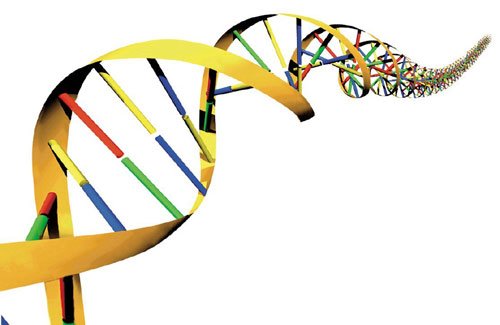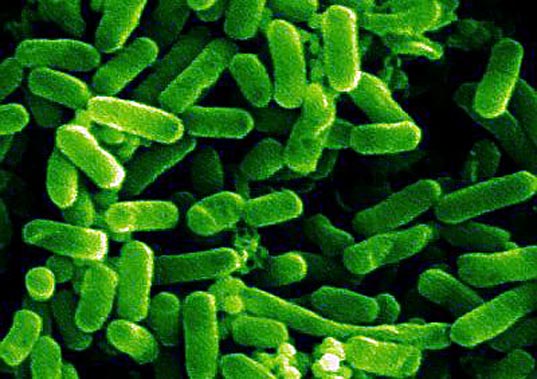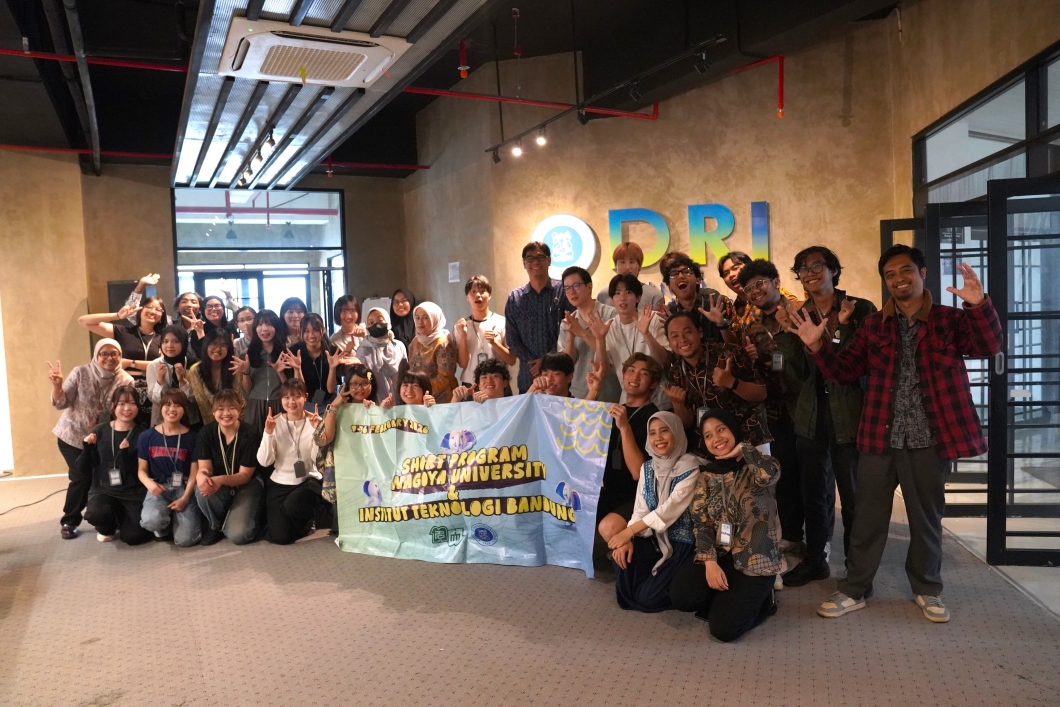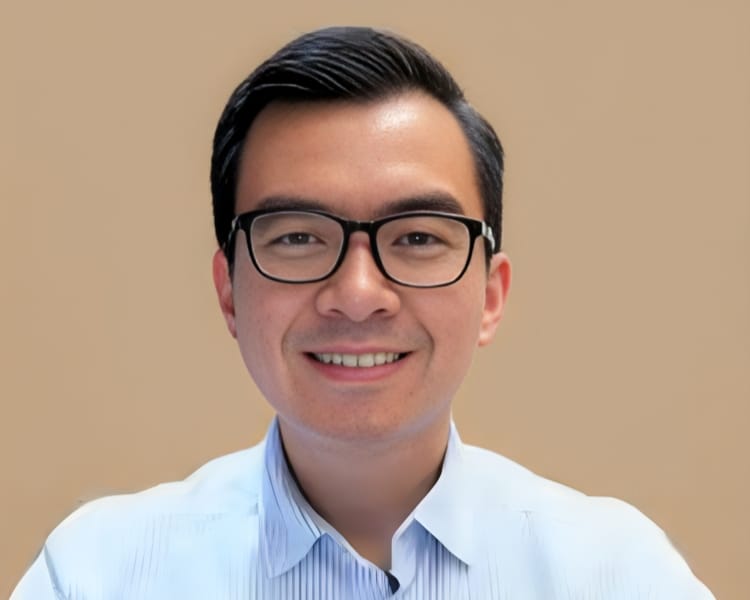ITB Team Ready to Participate at Genetically Engineered Machine International in Boston, USA
By Mega Liani Putri
Editor Mega Liani Putri

 BANDUNG, itb.ac.id - Science and technology are two collaboration key to civilization of life on earth. As an educational institution which is engaged in the fields of technology, science, and art, ITB must have a very important role in the development of science and technology to the people of Indonesia. Synthetic biology is one field that developing right now. Unfortunately, this field is still not very popular in Indonesia.
BANDUNG, itb.ac.id - Science and technology are two collaboration key to civilization of life on earth. As an educational institution which is engaged in the fields of technology, science, and art, ITB must have a very important role in the development of science and technology to the people of Indonesia. Synthetic biology is one field that developing right now. Unfortunately, this field is still not very popular in Indonesia. "Synthetic biology is the science of manipulating living organisms such as bacteria by increasing their abilities to do something," Joko Pebrianto Trinugroho said (Masters Program in Biotechnology 2013).
Joko is the leader of the team that will represent the ITB in the International Genetically Engineered Machine event (IGEM) in Boston, USA. There are 23 other people who are ready to support the team advanced to the land of Uncle Sam. They are Joko Pebrianto Trinugroho (Biotechnology), Roka Oktira Aji (Biotechnology), Pande Putu Erawijantari (Biology), Lance Rosa Karo-Karo (Biotechnology), Risma Wiharyanti (Biotechnology), Trick Ekawati Heryanto (Biotechnology), Marchantia Elfina Karima (Chemical ), Wiyudi Gomulya (Chemistry), Christian Heryakusuma (Chemistry), Ignatius Yovin Sugiyo (Chemistry), Tirta Widi Gilang Citradi (Biology), Bachtiar Hermawan (Microbiology), I Dewa Gede Sahya Deva (Microbiology), Fania Feby Ramadhani (Biology) , Nimas Ghasani (Biotechnology), Mardalisa (Biotechnology), Kenia Jewel Sukma (Microbiology), Elfa Norisda Aulianisa (Biology), Aditya Putra Pratama (Chemical Engineering), Wuddan Nadhirah Rodiana (Microbiology), Muhammad Hariomurti Mardikusumo (Electrical Engineering), Muhammad Musyafa Syahbid (Urban and Regional Planning), and Rizky Kusuma (Electrical Engineering). The team is also guided by expert lecturers, Dr. Sony Suhandono (SITH), Dr. Dessy Natalia (Chemistry), Dr. Maelita R. Moeis (SITH), Dr. Indra Wibowo (SITH), and Dr. Mochamad Apri (Mathematics).
In this year, IGEM will take place on October 30 sd 3 November. This is the tenth time for scientists and engineers in the the world gather up and collaborate with their creations in the field of synthetic biology. In 2004, the event was initiated by Massachusets Institute of Technology. Now, IGEM has become an independent organization that held the event each year with a similar name. Last year the ITB team got the silver medal.
Synthetic Biology to Overcome Plastic Waste Problem This year Joko and his friends are ready make proud of ITB in Boston. Aside from that, there is also the Indonesian team from the Universitas Indonesia, Universitas Brawijaya, and a team from Sumbawa. ITB own team examined the process of Escherichia coli bacteria engineered to produce the protein to degrade PET plastic. PET plastic is a type of plastic that is widely used as a bottle of bottled water.
This year Joko and his friends are ready make proud of ITB in Boston. Aside from that, there is also the Indonesian team from the Universitas Indonesia, Universitas Brawijaya, and a team from Sumbawa. ITB own team examined the process of Escherichia coli bacteria engineered to produce the protein to degrade PET plastic. PET plastic is a type of plastic that is widely used as a bottle of bottled water.
Environmental issues, especially the problem of plastic waste inspire Joko and his team to manipulate bacterial who is capable of degrading plastic so as to reduce the amount of plastic waste. PET plastic used in this study are unbiodegradable or very difficult to be degraded by living organisms. The issue then becomes a background process that synthetic biology will be carried out against the bacterium E. coli. E. coli is a bacteria that is not harmful to the environment. E. coli is very popular to be used in the process because it is synthetic biology. 'Engineered' E. coli has the ability to degrade plastics and utilize the degradation products as a source of energy. It is a challenge for this team is how to utilize E. coli as effective as possible in accordance with the life cycle. Ultimately, this research can be applied by companies related to PET plastic.
Collaborative Science and Engineering
A team of these twenty three people is indeed a moment of collaboration of various fields of science. Construction of engineering bacteria devices carried by students of biological sciences in order to produce the desired system. Analysis of the reaction products is done by the students as well as chemical modeling, chemical engineering and mathematics students assist in improving the efficiency of the system. In addition, there are group members of the Built Environment courses that have the ability to design presentations and publications. To create a website, in accordance with the direction of the race, Electrical Engineering students take part in this group.
Research has now reached the stage stringing plastic degrading system is expected to provide the best results to be presented in Boston more or less a month away. Joko and his colleagues hope to return medal, this time targeting the ITB team was a gold medal to take home..
"Sure hope we can come back with a gold medal. Personally my hope is that there will be a development science of synthetic biology in Indonesia because it is one of the bridge thinking scientist with the technique," Joko said the team leader.
Illustrations from various sources

.jpg)



.jpg)


